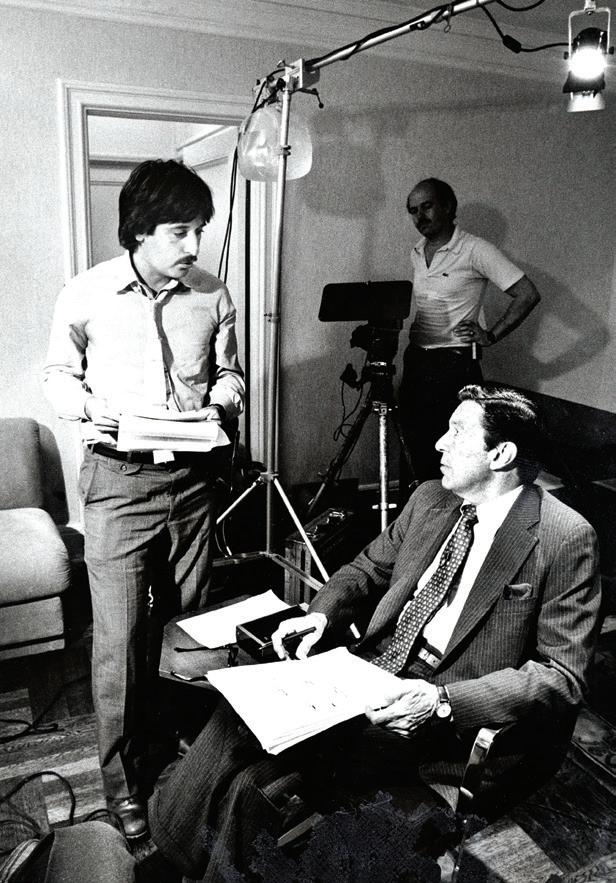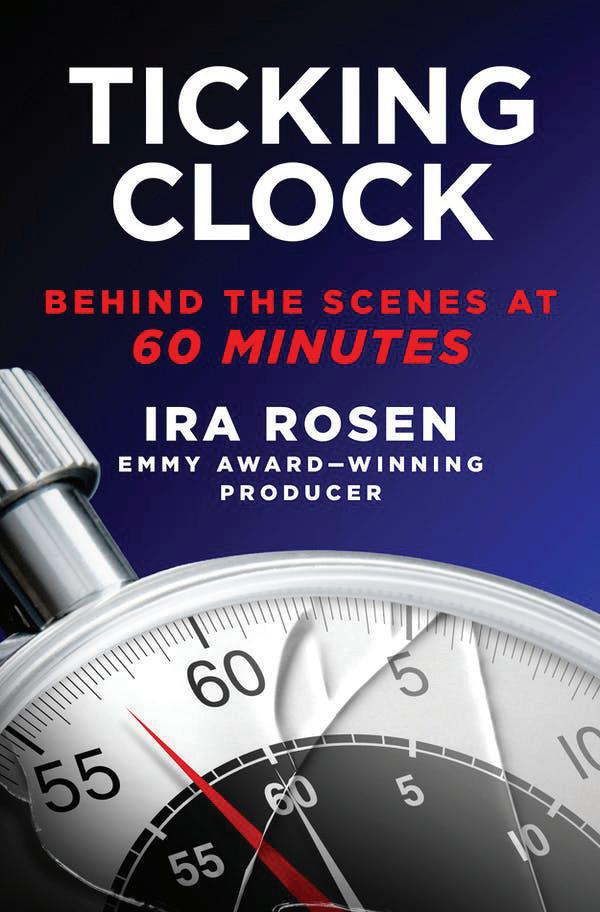
4 minute read
Review of “Ticking Clock: Behind the Scenes at 60 Minutes” by Ira Rosen
By Carole J Greene
If you are like me, you have been glued to CBS’s TV newsmagazine “60 Minutes” since its inception in 1968. To journalists and lovers of investigative journalism, its on-camera correspondents have become household names: the originals — Mike Wallace, Harry Reasoner, Morley Safer — and later ones — Steve Kroft, Charlie Rose, Chris Cuomo, Anderson Cooper. Ira Rosen knew them all, plus other big names in TV news like Diane Sawyer, Katie Couric and Barbara Walters. His no-holds-barred account reveals the competitive environment and power plays between anchors and correspondents at the weekly program introduced by a ticking clock.
Rosen came onto the scene in 1980, when, at the ripe age of 26, he was hired by the show’s creator, Don Hewitt, to be a producer for Mike Wallace. A producer’s job is to, well, produce. Th at is, fi nd a story and people who can shed light on the facts of the story, pitch it, then make sure it all happens in front of the cameras in a way to show your boss in his best light. Each one-hour show typically consists of three segments in a documentary format. If your assignment is Mike Wallace, you also, ideally, produce an opportunity for on-camera confrontation.
Notorious for his ego, Wallace had a reputation for chewing up producers and spitting them out. Wallace might start a TV season with five producers, all knowing that by the end of the season, at least one of them would be gone. Rosen is candid about stories that went awry — for example, a whistleblower deciding at the last minute not to go on camera — and could have resulted in Rosen’s being fired. But miracles or luck or both perpetually bailed him out. Still, even though he knew his job was on the line with every story, it was Rosen’s job to produce for one of the giants of the industry. He loved the assignment.


Rosen left “60 Minutes” and, for 15 years, served as a senior producer for ABC’s “Primetime” and “20/20” shows, similar to “60 Minutes,” that never grew out of wannabe status. Finally coming to understand that “being a ‘60 Minutes’ producer was the best reporting position on TV,” he returned to CBS.
With the advent of computers and the internet, he could now discover and research stories online. He embraced the challenge of being a producer again but, this time, it was for Steve Kroft. Lacking Mike Wallace’s charisma but matching him for ego, Kroft was an established reporter and an excellent writer with a knack for explaining complicated stories. Rosen tells us some of those stories.
This is the kind of book that could be read straight through, following Rosen’s career in its chronology. Or readers could cherry-pick by looking at the table of contents and chapter titles such as “Accident at Three Mile Island,” “Gangsters,” “The Clintons,” “Hillary 2016,” “Trump,” “Charlie Rose” and “#MeToo.” Each reveals factual tidbits that titillate or even shock.
How did it happen that, after leaving the White House, the Clintons “had managed to make nearly $250 million?” What does Steve Bannon really think of Trump? As mentioned earlier, this book is “no holds barred,” so Rosen will answer these questions — and many more. After all, he has received 24 National Emmys, four duPont Awards, two RFK Awards, and two Peabodys for his work as producer of some of the most memorable and important stories in TV news.
In this season’s Jewish Book Festival, Ira Rosen will share the podium with Jen Maxfi eld in the fi nal presentation of the festival on Wednesday, March 22, at 2 p.m.
Maxfield’s book, “More After the Break,” revisits 10 memorable stories from her career as a TV news reporter. Two scintillating authors for one ticket! What a deal! It will be available via Zoom and in person at the Nina Iser Jewish Cultural Center (4720 Pine Ridge Road, Naples). For tickets, go to jewishnaples.org.





